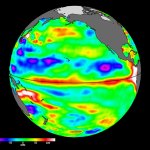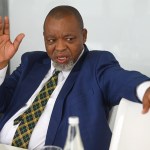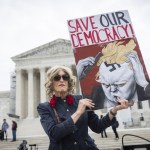Newsdeck
Venezuela must defy state of emergency: opposition
by Marc BURLEIGH Venezuela's opposition on Tuesday urged the public to defy a state of emergency President Nicolas Maduro has decreed over a nation sapped by food shortages and a collapsing economy.
The opposition-controlled National Assembly rejected the decree in a vote, saying it “deepens the severe disruption of constitutional and democratic order that Venezuela is suffering through.”
But the Supreme Court may overrule that, as it has other done with congressional decisions.
Opposition leader Henrique Capriles also said before the vote that the army must decide whether it is “with the constitution or with Maduro.”
The ultimatum came on the eve of nationwide protests to demand the president’s ouster through a referendum.
But Maduro hit back in a near four-hour news conference on Tuesday in which he called the referendum “not viable” and the congress “inept and incapable.”
He also accused the United States of playing a role in the woes rocking his oil-rich South American country and claimed a US surveillance plane had twice last week violated Venezuela’s airspace.
Maduro said he called the state of emergency, which came into force on Monday for a renewable 60-day period, to see off threats to the country.
Measures include broadening the powers of soldiers and police to keep public order, with the backing of local civilian groups.
Maduro has also ordered military exercises for Saturday.
– No visible change –
There were no immediate signs of any changes in the streets in Caracas on Tuesday under the state of emergency.
There was no extra military presence nor signs of food handouts or other unusual activity by the government in the center of the capital.
Citizens went about their business under the tropical sun and the traffic was as dense as usual. Supermarkets and pharmacies had limited stocks on shelves, with many basic goods missing.
The opposition, which controls congress but has little real power because of Maduro’s sway over the government, Supreme Court and security forces, says the emergency decree is an attempt by the president to put himself above the constitution.
“If Maduro wants to apply this decree he will have to bring out the warplanes and the tanks into the street, because he will have to apply it through force,” Capriles told a news conference.
Maduro and his vice president, Aristobulo Isturiz, both allege an opposition petition to bring about the recall referendum is full of false signatures.
Venezuela’s electoral commission is still processing the petition, however, and has not yet ruled on its validity.
If the referendum does go ahead, it must be held before January 10, 2017 in order to trigger new elections. Otherwise, a successful recall vote would simply transfer power to Isturiz.
The opposition accuses the electoral authorities of stalling.
– ‘We are victims’ –
With the country in the grip of hyperinflation, a shrinking economy, rampant crime, corruption, and food and electricity shortages, sentiment has turned against Maduro, the chosen successor of the late Hugo Chavez.
Seventy percent of the population wants to see a new government, polls show.
“We are victims of a media, political and diplomatic attack that is behind the most serious threat our country has faced in the past 10 years,” Maduro told the news conference linked by Internet to Venezuelan embassies and consulates abroad.
He said his country was the target of “imperial interventionism” similar to a “coup” he alleged happened in Brazil last week, when his counterpart Dilma Rousseff was suspended by senators ahead of an impeachment trial.
In his decree, Maduro has given security forces broad authorization to counter “destabilizing actions that mean to disrupt life inside the country or its international relations.”
The text also authorizes the state to do what is necessary to ensure supply of basic foods and to counter the crippling energy shortage that has resulted in electricity rationing and two-day workweeks for government employees.
The United States has described reports of Venezuela’s spiral downwards as “breathtaking” but has been careful not to make comments seen as meddlesome.
Individuals, companies and non-governmental organizations in Venezuela with links to foreign groups are to be put under scrutiny and risk having their finances frozen, according to the decree.
bur-rmb/sst
© 1994-2016 Agence France-Presse





















 Become an Insider
Become an Insider